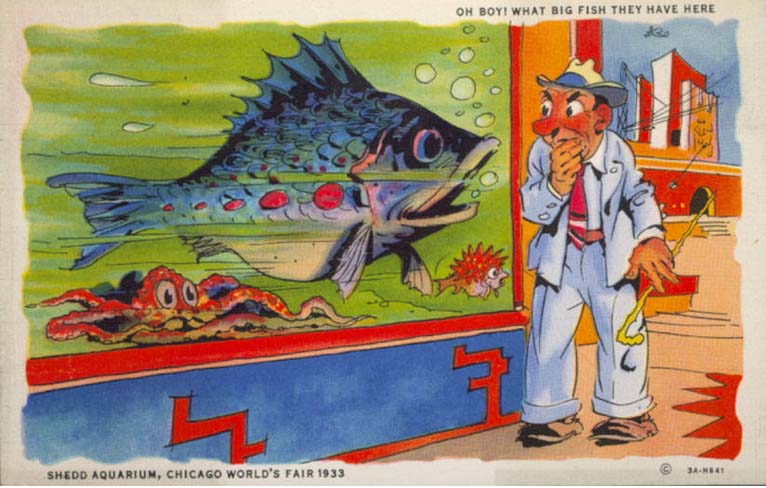Revised as of
25 Nov 2022
It’s a two-fer word confusion: half vs halve and halve vs have.
Half and halve refer to the division of something into equal parts. Half is the heavy lifter, being adjective, adverb, noun, predeterminer, and pronoun. What half is not is a verb. That’s where halve comes in. It handles all the action.
As for halve and have, it’s similar to the issue in the mistaken of — a mistake in hearing, which makes this a pair of heterographs (a subset of homophone).
You already know that halve is the verb form of half. Have is about possession, when you get right down to it.
I suppose you could have half of what’s been halved . . .
The Have / Have Got Issue
There are three issues that involve the have:
- Which to use in formal writing
- The mistake of of
- The superfluous have
Formal versus Informal Haves
Have got is widely used in both American and British English, however . . . have got is more appropriate for informal use in dialogue — spoken or thought. Consider your character and whether their nature is a relaxed or friendly one and their level of education.
Keep in mind that the American definition of got implies a state of possession or ownership. So have got is has something.
The Mistake of Of
It’s a case of mistaken “identity”, as we hear might’a, but it is actually might’ve, i.e., might have. And yes, this also applies to could’ve, should’ve, and would’ve.
Do explore the post “Might’a not be a Could’a, Would’a, Should’a” for more details.
The Superfluous Have
Sometimes writers get a little crazy and add an extra have where it shouldn’t be.
I might have missed it if you hadn’t have pointed it out
The better choice would have been:
. . . if you hadn’t pointed it out
Admittedly, the double haves, ahem, have been around since the 15th century. But it’s always been in a situation that is hypothetical . . . with if statements. And still not considered proper English.
Word Confusions . . .
. . . started as my way of dealing with a professional frustration with properly spelled words that were out of context in manuscripts I was editing as well as books I was reviewing. It evolved into a sharing of information with y’all. I’m hoping you’ll share with us words that have been a bête noire for you from either end.
If you found this post on “Half vs Halve vs Have” interesting, consider subscribing to KD Did It, if you’d like to track this post for future updates.
| Half | Halve | Have |
|---|---|---|

Half by Armando Mejía is under the CC BY-SA 2.0 license, via Flickr. |

An Apple Halved is in the public domain, via PxHere. — First the apple was halved, then half of it was halved again. |

Oh Boy! What Big Fish They Have Here, Shedd Aquarium, Chicago World’s Fair, 1933, by an unknown author is in the public domain, via Wikimedia Commons and courtesy of the Curt Teich Postcard Archives Digital Collection at the Newberry Library. |
| Part of Grammar: | ||
| Adjective; Adverb; Noun; Predeterminer; Pronoun
Plural for noun: halves |
Verb, intransitive & transitive
Third person present verb: halves |
Noun; Verb, auxiliary; Verb, intransitive & transitive Plural for the noun: haves Present tense: have |
| Adjective: An amount equal to a half Being half or about half of anything in degree, amount, length, etc. Partial or incomplete Adverb:
Noun:
[Informal] A half-price fare or ticket, especially for a child A quantity or amount equal to such a part (½) One of two
[Informal] Half dollar
[Baseball] Either of the two units of play into which an inning is divided, the visiting team batting in the first unit and the home team batting in the second [British; informal] A half-crown coin
Predeterminer:
Pronoun:
|
Verb, intransitive: Reduce or be reduced by half Verb, transitive: Divide into two parts of equal or roughly equal size
[Golf] To play (a hole, round, or match) in the same number of strokes as one’s opponent [Usually as noun halving] Fit (crossing timbers) together by cutting out half the thickness of each |
Noun: [Informal; usually haves] People with plenty of money and possessions [British] A swindle Verb, auxiliary: [Followed by infinitival to, with or without a main verb] To be required, compelled, or under obligation Verb, intransitive: Verb, transitive:
Experience
[have to do something or have got to do something] Be obliged or find it necessary to do the specified thing
Perform the action indicated by the noun specified (used especially in spoken English as an alternative to a more specific verb)
[Also have got] Show (a personal attribute or quality) by one’s actions or attitude
[Also have got] Place or keep (something) in a particular position
Be the recipient of (something sent, given, or done)
|
| Examples: | ||
| Adjective: In the last half century, computer chips have reduced in physical size while increasing their capacity. We’re down to a half quart. He’s at half speed. I’ve only gathered up a half sleeve. These are only half measures. Adverb: The chicken is half-cooked. It was only half understood. Petey was half recovered from last night. Noun: They live on the northern half of the island. Margie! It’s been reduced by half! If it’s divided in half, we can each have some. You don’t know the half of it. Dang, I missed the first half. If your daughter is under twelve, she qualifies for a half. She holed from six feet for a half at the seventeenth. If he plays half for the Knights today, I hope the selectors watch him. Four dimes and two nickels make a half. He ordered a half of bitter. Predeterminer: Almost half the children turned up. Half the letters were sent first class. Pronoun: A full half of them are gate-crashers. |
Verb, intransitive: Profits are expected to halve after a tail-off in new customers. Soft-boil four eggs and cool immediately, peel, and halve. Pre-tax profits nearly halved to $5 million. The cost of sales roughly halved from $7.2m to $3.7m during the period. Between 1812 to 1814, wheat, barley, and oats all roughly halved in price. Verb, transitive: She halved her rations with a stranger. Next, peel and halve the pears. He pledged to halve the deficit over the next four years. She insisted on halving the bill. They halved the match. Megan and Jenn halved that hole. Lapping is performed in a variety of ways — either by simply halving the end of each timber, or by halving and dovetailing. |
Noun: There is an increasing gap between the haves and have-nots. It can lead to bitter divisions and increase the psychological and social distance between the haves and the have nots. It also encourages the haves to donate 2.5 percent of their income to the poor. I have to say, this whole tropical island thing is a bit of a have. Verb, auxiliary: He had asked her. She will have left by now. I could have helped, had I known. “Have you seen him?” “Yes, I have.” She has gone. It would have been an enjoyable party if he hadn’t felt downcast. I have to leave now. I didn’t want to study, but I had to. Verb, intransitive: She has gone. I would have felt better if the hotel had cost less. I have to leave now. Verb, transitive: Have you got a job yet? I don’t have that much money on me. He’s got the equipment with him. The ham had a sweet, smoky flavor. She’s got blue eyes. The house has gas heat. He had himself two highballs. in 1989 the party had 10,000 members. He’s got three children. Do you have a client named Pedersen? How much time have I got for the presentation? He’s got a BA in English. She knew Latin and Greek; I had only a little French. I went to a few parties and had a good time. I was having difficulty in keeping awake. I’ve got a headache. He had the strong impression that someone was watching him. We’ve got a few ideas we’re kicking around. I’ve no doubt he’s as busy as I am. She had her bag stolen. I want to have everything ready in good time. I had the TV on with the sound turned down. It is advisable to have your carpet laid by a professional. She’s always having the builders in to do something. She had her long hair cut. You’ve got me there; I’ve never given the matter much thought. I realized I’d been had. Yeah, I had her last week. You don’t have to accept this situation. We’ve got to plan for the future. She’s got a lot to do. If you think that place is great, you have to try our summer house. There has to be a catch. He had a look around. The color green has a restful effect. Are you going to have a party? I’ll have the vegetable plate. She’s going to have a baby. He had little patience with technological gadgetry. If you’ve got the drive to finish your degree, then do it. God have mercy on me! I can’t have you insulting Tom like that. Mary had her back to me. I soon had the trout in a net. He had me by the throat. She had a letter from Mark. We’re having the children for the weekend. |
| Derivatives: | ||
| Adjective: half-and-half, half-ass, half-arse [British], half-assed, half-arsed [British], half-baked, half-bred, half-caf, half-cocked, half-completed, half-conscious, half-cut [British], half-done, half-duplex, half-finished, half-hardy, half-hourly, half-integral, half-length, half-round, half-size, half-starved, half-timbered, half-yearly, halfhearted, halfway, halfwitted Adverb: half-and-half, half-yearly, halfheartedly, half-hourly, halfway, halfwittedly Noun: half-and-half, half-bottle, half-bred, half-breed, half-brother, half-caf, half-caste, half-court, half-cup, half-door, half-dozen, half-integer, half-length, half-life, half-light, half-mast, half-moon, half-move, half-sister, half-slip, half-staff, half-tester, half-timbering, half-track, half-truth, half-volley, halfback, halfpence [British], halfpennies [British], halfpenny [British], halfpennyworth [British], halfpipe, halftime, halftone, halfwit, halfwittedness Verb: half-ass, half-arse [British] |
Adjective: unhalved Noun: halving |
Noun: having |
| Phrasal Verb | ||
| have at have got something on have someone on have something on have something out |
||
| History of the Word: | ||
| The earliest meaning of the Germanic base was side; it was also a noun sense in Old English.
Old English half, healf, is of Germanic origin and related to the Dutch half, the Old Frisian, the Old Saxon half, the Old High German halb, the Old Norse halfr, and the Gothic halbs adjectives). |
Old English hielfan is related to the Middle High German helben.
By Middle English, it became halven, a derivative from half:
|
Old English habban is of Germanic origin and related to the Dutch hebben and the German haben. |
C’mon, get it out of your system, bitch, whine, moan . . . which words are your pet peeves? Also, please note that I try to be as accurate as I can, but mistakes happen or I miss something. Email me if you find errors, so I can fix them . . . and we’ll all benefit!
Satisfy your curiosity about other Word Confusions on its homepage or more generally explore the index of self-editing posts. You may also want to explore Book Layout & Formatting Ideas, Formatting Tips, Grammar Explanations, Linguistics, Publishing Tips, the Properly Punctuated, Writing Ideas and Resources, and Working Your Website.
Resources for Half vs Halve vs Have
Apple Dictionary.com
Dictionary.com: half, halve, have
Lexico: half
Oxford Dictionaries: have
Pinterest Photo Credits:
Joinery-Simple Halved by Crati and 4′ Sliding Table Saw by ToolSpirit are both under the CC BY-SA 3.0 license, via Wikimedia Commons.


